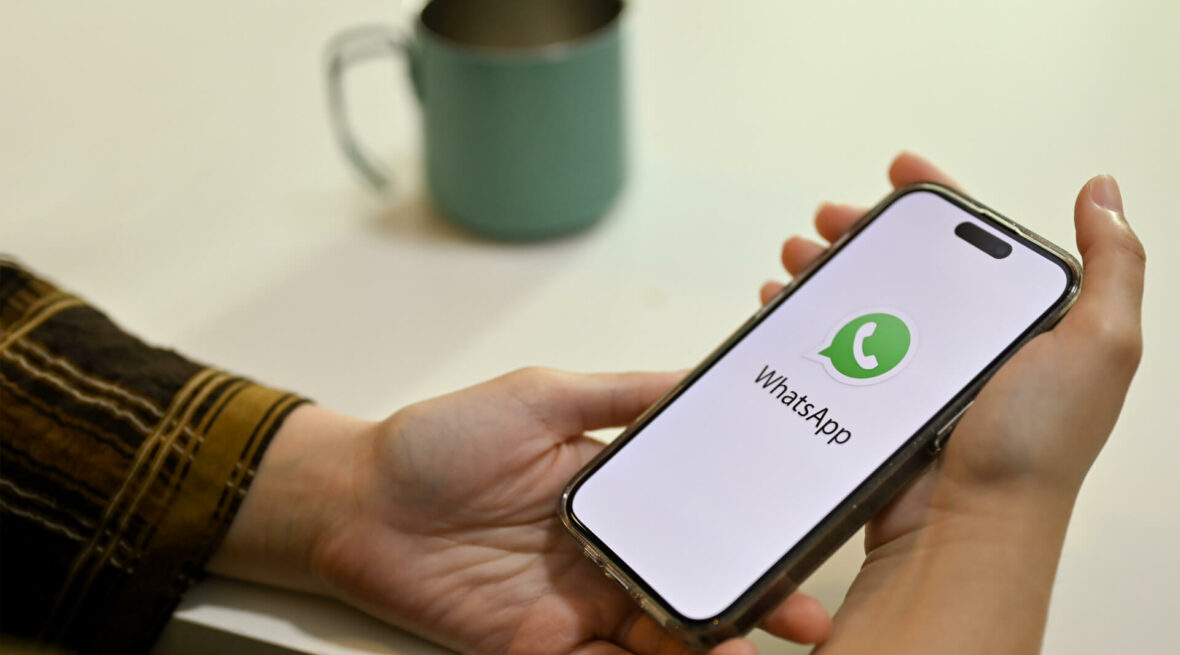So you want to investigate Christianity but you’re afraid of how your friends and family might react if they discover what you’re doing? You need a safe way to begin a conversation with someone who can answer your questions, but you don’t want anyone to overhear the conversation?
Social media is a space you normally expect to find cluttered with superficial conversations or judgmental comments. But for two women in Central Asia, social media and WhatsApp in particular became the missing piece of the puzzle as they investigated Christianity together.
Creating a safe space for women to talk about Jesus
Emily* is a missionary in a Central Asian country where almost 90% of the population practice some form of Islam. She loves the people of the city God sent her to and feels responsible for them. So she’s figuring out how to use her time and all the tools available to her in introducing the people around her to Jesus.
Although the digital native label sits uneasily with Emily, she’s taken the time to understand the people she lives among and how they use technology. One of the trends she noticed in her location was that an increase in religious education was creating more day-to-day conversations about God. Emily sensed an opportunity, but she still had to overcome two major obstacles.
The female students she met were uncomfortable talking publicly about Christianity, because converts bring shame to their families. And there was also a logistical problem in meeting female students after class. In her city, young women who aren’t home before dark develop an unwanted reputation.
Emily needed to create an environment for these women to talk about their beliefs. When someone suggested a digital solution, she was willing to give it a try.
A playbook for explaining the Gospel using social media
Over 42 billion WhatsApp messages are sent daily by more than 1 billion users. Many of them are in the developing world, or locations where competitive SMS bundles are an endangered species. In countries where it’s risky for someone to investigate or talk about Christianity, WhatsApp offers a solution.
Emily had used Facebook before to build relationships with students, but in her current location few people used it.
“100% of the students in my city use WhatsApp as their primary mode of communication because it’s cheaper than SMS,” says Emily.
So she adapted a method for using Facebook in evangelism to her preferred platform.
The WhatsApp Playbook
1. Choose 10 people from your contacts that you want to start a spiritual conversation with.
Emily chose people she had recently been chatting with. One girl Emily messaged was a student called Mary*. She’d known her for a year through an English class but they had yet to talk about their beliefs.
2. Create images to send attached to a Bible verse. Accompany that with a question.
Emily cut and pasted Bible verses in the local language, allowing God to speak for Himself, and making Scripture the foundation of every chat.


Emily sent her 10 contacts images onto which she pasted Bible verses. Her first image featured two people in a boat, with Proverbs 17:17 which says, “A friend loves at all times and a brother is born for adversity.”
“I’ve been thinking about this today, what do you think?”Emily asked her contacts.
3. Wait to see who responds.
This filters your contacts down to the most spiritually curious.
“At least 1 person has been interested every time I’ve done this,”Emily says. “So I’ve learned how to be ready when people respond.”
Mary was out of the country at the time. Social media was the only way Emily could connect with her.
The day after receiving Emily’s message Mary replied, “I’m still thinking about what you sent me.” Emily was surprised to get a response to her first message, but she asked the same question she used with students on campus.
“Have you ever heard about the 4 Spiritual Laws?’
“No I haven’t,” replied Mary.
“Are you interested?” Emily asked her.
“Yes,” said Mary.
4. Build a bridge to a deeper conversation
Emily used the God Tools app, which is available in the language she needed. By sharing screen shots of each point of a Gospel explanation and asking questions, she moved the conversation forward.
“I wasn’t asking very deep questions. Just things like, ‘What do you think about this?’” Emily says.
Emily had no idea what was or wasn’t sinking in with Mary, but the two women kept chatting until Emily had finished explaining the Gospel.
5. Share a prayer that helps someone begin a relationship with God
Emily showed Mary the prayer in the God Tools app and explained how she could use it to accept the gift of salvation. She wasn’t expecting what happened next.
“When I finished explaining the prayer, Mary messaged me,” Emily says.
Mary typed two words: “I prayed.”
“To be honest I didn’t believe it had really happened,” says Emily. “But when Mary returned to my city I took her out for lunch and tried explaining the Gospel to her again.”
“Emily, you shared this with me on February 2nd,” said Mary. “I received this gift of salvation already.”
That Sunday in front of a church full of people from her own culture, Mary stood up and told the story of how she’d come to know God.
Social media breaking through barriers
Emily says she increasingly sees a generation of students who are won to our faith not by logic, but through relationship. Whether those relationships begin in a campus coffee shop or via WhatsApp doesn’t really matter.
“I know a woman who had been connected to our ministry in various ways for ten years,” says Emily. “It was a WhatsApp conversation that helped her finally decide to become a Christian.”
As a convert to evangelism through social media, Emily says, “I already knew God was a Holy show-off. I can hear Him saying, ‘I can change anybody’s life in any way I want.’”
Editor’s note: You can download the God Tools App here.
*All names changed for security purposes.
